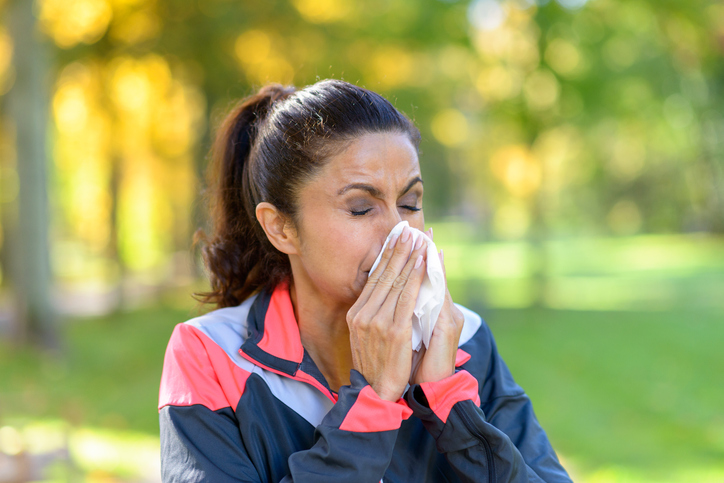 It is the middle of winter and you have been struck down by the dreaded lurgy. When your alarm goes off at 5:30am, it is ever so tempting to snooze it and skip your morning workout, but is that the best thing for you? Should you sweat it out, or should you rest and recover?
It is the middle of winter and you have been struck down by the dreaded lurgy. When your alarm goes off at 5:30am, it is ever so tempting to snooze it and skip your morning workout, but is that the best thing for you? Should you sweat it out, or should you rest and recover?
Regular, moderate intensity exercise has been shown to boost your immunity and therefore reduce your risk of colds and infections. However, when you are sick, your body is already stressed trying to fight the infection, so the added stress of a high-intensity workout may be more than your body can handle. With this in mind, how do you know if you should exercise?
Let your symptoms be your guide
Do you only have “above the neck symptoms” (i.e. runny nose and a sore throat)? Go for it, exercising with these symptoms will not alter the severity or the duration of your illness. You may not feel up to doing your usual workout – instead of going for a jog, try a light walk or do a yoga class. If you still want to do strength training, reduce the amount of weight you are lifting or just do a bodyweight workout. You should also increase the amount of rest between sets.
Do you have muscle aches, a fever or stomach symptoms? Listen to your body and take time off. If you can recover from the illness more quickly, skipping a workout or two is worth it. It is also better for other gym users that you are not using the equipment while you are contagious. In saying this, this is not an excuse to stay on the couch all day. Keep up your incidental activity throughout the day.
Returning to your regular routine
You will probably not be able to start back at the level you were exercising before you got sick, especially if you have been sick for an extended period and you have not been exercising regularly. Start at a lower level, see how your body responds, and gradually increase. This may include shortening your sessions, or using lighter weights/slower speeds. As mentioned at the beginning, exercising a few times a week can help you stave off illness in the first place, so make sure you are regularly active!
 AUTHOR: Emily Cox graduated UQ in 2015 with a Bachelor of Exercise and Sports Science, having majored in Clinical Exercise Physiology. Working as an Accredited Exercise Physiologist and Research Assistant at a chronic disease management clinic for people aged 55+ years sparked her interest in optimising the prescription of exercise for people with type 2 diabetes and prompted her to undertake her PhD. Her current research is examining the physiological, biochemical and psychological effects of low-volume aerobic and resistance high intensity interval training in people with type 2 diabetes.
AUTHOR: Emily Cox graduated UQ in 2015 with a Bachelor of Exercise and Sports Science, having majored in Clinical Exercise Physiology. Working as an Accredited Exercise Physiologist and Research Assistant at a chronic disease management clinic for people aged 55+ years sparked her interest in optimising the prescription of exercise for people with type 2 diabetes and prompted her to undertake her PhD. Her current research is examining the physiological, biochemical and psychological effects of low-volume aerobic and resistance high intensity interval training in people with type 2 diabetes.



